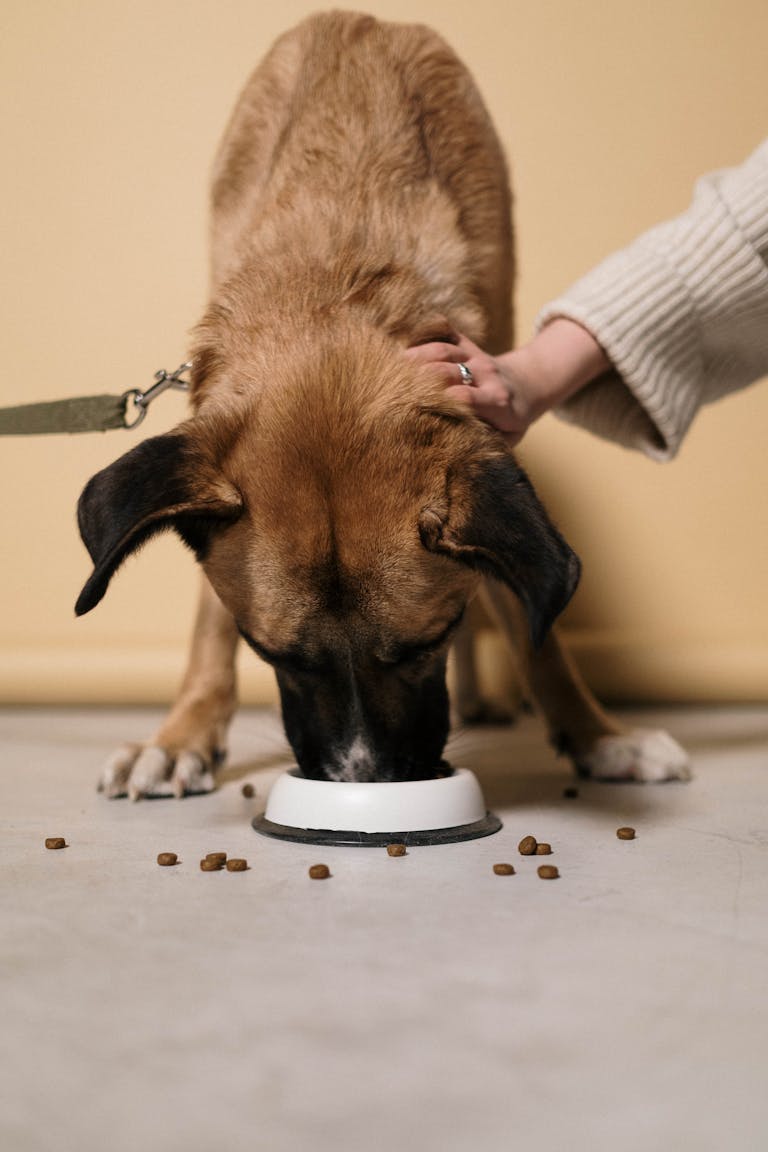Best Supplements to Support Your Dog’s Immune Health in 2025

Best Supplements to Support Your Dog’s Immune Health. Ensuring your dog has a strong immune system is key to their overall health. A robust immune system helps fight illnesses and infections and keeps them thriving.
While a balanced diet and regular exercise are essential, supplements can provide the extra boost your dog might need, especially during certain stages of life or under added stress. From probiotics to antioxidants, these additions can make a real difference.
To learn more about natural superfoods that can complement your dog’s immunity, check out Dog-Friendly Superfoods. These carefully chosen foods can enhance health and vitality alongside supplementation.
Table of Contents
Understanding Your Dog’s Immune System
Your dog’s immune system is like their bodyguard, working around the clock to protect them from illness and disease. It’s a complex network of organs, cells, and processes vital for their well-being. When their immune system is strong, they can fend off infections and recover faster from injuries or illnesses. Let’s break it down further.
Key Components of the Immune System
The immune system has several moving parts that work together seamlessly. It’s like having an entire team of security guards patrolling every corner. Here are the primary components:
- Lymph Nodes: These small gland-like structures are scattered throughout your dog’s body. They filter harmful substances and produce infection-fighting white blood cells.
- Bone Marrow: This is where all the immune cells are born, including B-cells, which produce antibodies.
- Thymus: Essential in puppyhood, the thymus produces T-cells, which help recognize and destroy infected or damaged cells.
- Spleen: Think of this as a blood filter. It removes old red blood cells and pathogens while storing white blood cells.
- White Blood Cells are the foot soldiers of immunity—destroying bacteria, viruses, and other invaders.
- Skin and Mucous Membranes: The first line of defense—you could call it the fortress wall. They act as barriers to keep harmful organisms out.
Each plays a vital role in keeping your dog safe and healthy. Proper nutrition is critical to give the immune system the support it needs. For instance, diets rich in proteins help fuel the production of infection-fighting antibodies. Learn more about the role of protein in immune health in this Dog Protein Requirements Guide.
Signs of a Weakened Immune System
Is your dog’s immune system struggling? It’s not always easy to tell, but there are some warning signs you should watch for. A weak immune system leaves dogs more vulnerable to infections and illnesses. Key symptoms include:
- Frequent Infections: Whether it’s the ears, skin, or urinary tract, recurring infections signal a problem.
- Slow Wound Healing: Cuts or scrapes that take unusually long to heal may suggest a compromised system.
- Lethargy or Fatigue: If your previously energetic pup seems sluggish, its immune system might be underperforming.
- Chronic Diarrhea or Digestive Issues: Digestive health is closely linked to immunity, and persistent stomach trouble might hint at an issue.
- Skin Problems: Repeated skin infections, excessive dryness, or redness could indicate a weakened defense system.
- Weight Loss or Lack of Appetite: These are often early indicators that something isn’t quite right.
Early identification of these signs and addressing them is crucial. Consult a veterinarian if you notice any of the above symptoms. Check out Common Immune System Issues In Dogs for deeper insights into disorders that stem from immune system weakness in dogs.
Supporting your dog’s immune health is an ongoing process, requiring balanced nutrition and care. Feeding practices, including those tailored to your dog’s life stage, play a significant role. If you’re considering a more natural diet, read up on How to Start Your Dog on a Raw Food Diet.
By watching for these symptoms and understanding their immune system’s essential components, you’re already taking key steps to support their long-term health.
Top Supplements to Boost Your Dog’s Immune Health
A healthy immune system is the cornerstone of your dog’s well-being. While a balanced diet lays the foundation, supplements can act as reinforcements to strengthen their defenses. List the most effective supplements to enhance immune function and overall health.
Probiotics for Gut and Immune Health
Did you know your dog’s gut contains over 70% of their immune cells? Probiotics, the “good bacteria,” are vital in maintaining a balanced gut microbiome. A healthy gut strengthens immunity, improves digestion, and supports emotional well-being by decreasing stress-related responses.
The benefits don’t stop there. Probiotics can reduce the risk of recurring gastrointestinal issues, making your pup less vulnerable to infections. Want to include probiotics in your dog’s diet? Many supplements provide strains like Lactobacillus and Bifidobacterium, directly correlating with better digestion and stronger immunity.
Learn more about maintaining gut integrity in dogs in this Seasonal Feeding Tips.
Omega-3 Fatty Acids and Inflammation Control
Inflammation is one of the immune system’s biggest foes, and that’s where Omega-3 fatty acids shine. Found in fish oils and flaxseed, Omega-3s minimize inflammation, which can significantly benefit dogs with conditions like arthritis, allergies, or autoimmune disorders.
What’s more, Omega-3 fatty acids contribute to glossy coats and better brain function—it’s like hitting a health jackpot for your pup! Reducing chronic inflammation provides long-term protection against diseases and promotes overall vitality.
Check out why Omega-3 is highlighted in foods like those discussed in Best Dog Foods For Corgis.
Antioxidants for Cellular Defense
Think of antioxidants as your dog’s cellular security system. These compounds neutralize free radicals that can cause oxidative stress, a leading contributor to chronic diseases and premature aging. Antioxidants like vitamins C and E, beta-carotene, and selenium are particularly effective in supporting immune health.
Foods such as blueberries, spinach, and carrots contain natural antioxidants, but supplementation ensures your dog gets enough even if their diet is lacking. Antioxidants don’t just protect at the cellular level; they support healthy skin, eyes, and even cognitive function.
Discover why antioxidants are vital for immune health by reviewing supplements like Immune Plus Immunity Support for Dogs.
Colostrum for Immunity Enhancement
Colostrum, often called “nature’s first food,” is rich in antibodies, growth factors, and nutrients that naturally strengthen the immune system. It’s particularly beneficial for puppies or senior dogs needing extra protective support.
This dairy-based supplement boosts your dog’s defense against pathogens and helps reduce allergy symptoms. It’s like providing a shield to their immune system, making sure they’re ready to fight off potential invaders.
Interested in trying colostrum for your dog? Many immune-boosting chews include it alongside probiotics and antioxidants, like those available from Immune Health Supplement Chews for Dogs.
Multivitamins for General Health
Let’s face it: even the best diets might fall short. That’s where multivitamins come into play, acting as a safety net to close nutritional gaps. High-quality canine multivitamins often include zinc, B-complex vitamins, and vitamin D—essential for cellular repair and immune resilience.
Not all multivitamins are created equal, so selecting one tailored to your dog’s specific needs is crucial, whether they’re a puppy, adult, or senior. A well-balanced multivitamin boosts immunity while keeping their skin, coat, and energy levels in top condition.
To determine if your dog might benefit from a multivitamin, visit this guide on How To Spot Nutritional Deficiencies In Your Dog.
By incorporating these targeted supplements into your dog’s health regimen, you equip them with tools to combat illnesses and maintain robust immunity.
Tips for Choosing the Right Supplement
Selecting the right supplements for your dog isn’t a decision to take lightly. With countless options on the market, it’s easy to feel overwhelmed. However, making informed choices ensures your dog reaps the benefits without unnecessary risks. Let’s cover the key steps you should take to find the supplements that best suit your furry friend’s needs.
Consult with Your Veterinarian
Before adding anything new to your dog’s diet, consulting with your veterinarian is a must. They know your dog’s unique health profile and can recommend supplements that align with their needs. Whether your dog is dealing with joint pain or digestive issues or needs a general health boost, your vet’s input is invaluable.
Veterinarians can also help you avoid potential interactions with existing medications or detect unnecessary supplementation. Overloading your dog’s diet can do more harm than good. Want to learn more about the importance of balanced options? Check out Top Supplements To Boost Your Dog’s Health.
Verify Supplement Quality
Not all supplements are created equal. Prioritize products from trusted brands with proven track records of safety and effectiveness. Look for evidence of third-party testing, such as certifications from reputable organizations like the National Animal Supplement Council (NASC). A Certificate of Analysis (COA) indicates the product is free from harmful contaminants and contains advertised nutrients.
Avoid supplements that list vague ingredients or over-promise results—these are red flags. Opt for supplements with clear labeling and complete transparency. For more details about selecting high-quality options, the American Kennel Club’s Guide on Dog Supplements can be helpful.
Understand Your Dog’s Specific Needs
Every dog is different, so a one-size-fits-all approach doesn’t work for supplements. Age, breed, activity level, and health conditions should guide your choices. For example:
- Puppies often benefit from supplements that support growth, such as omega-3 for brain development.
- Senior dogs may need joint-support supplements like glucosamine and chondroitin.
- Dogs with allergies might require antihistamine-based or anti-inflammatory options.
Take time to assess your dog’s day-to-day health. Do they have stiff joints, low energy, or frequent stomach upsets? These signs might point to specific supplementation needs. Get tips on how breed and age influence nutrition in Best Joint Supplements For Dogs.

Photo by RR Medicinals
Choosing the right supplement for your dog doesn’t have to be daunting when armed with the proper knowledge. Remember these tips to provide your pup with safe and practical support.
Natural Ways to Support Your Dog’s Immune System
A strong immune system is your dog’s first line of defense against illnesses. While supplements are essential in boosting immunity, natural lifestyle choices impact equally significantly. Let’s explore how nutrition, physical activity, stress reduction, and rest can benefit your furry friend.
Balanced Diet and Nutrition
The cornerstone of a healthy immune system is a balanced diet. Just like athletes need the right fuel to perform, your dog needs nutrient-rich food to maintain optimal immunity. A diet containing high-quality proteins, fats, vitamins, and minerals strengthens their defenses.
Key elements of a balanced diet include:
- Lean Proteins: These help produce antibodies and repair tissues.
- Antioxidants: Found in fruits like blueberries and vegetables like spinach, they combat oxidative stress.
- Omega-3 Fatty Acids: Beneficial for controlling inflammation and improving skin health.
- Probiotics: Essential for gut health and immunity.
Learn how premium diets contribute to a strong immune system in Best Senior Dog Foods: Top Options.
Regular Exercise
Physical activity isn’t just about burning off energy—it’s critical to maintaining immune health. Regular exercise stimulates blood circulation, helping immune cells travel where they’re most needed. Keeping your dog active creates a healthier, happier pup, whether it’s a brisk walk, a game of fetch, or agility training.
Did you know that obesity weakens a dog’s immune system? As highlighted by Natural Ways to Improve Your Dog’s Immune System, exercise prevents excess weight, which is often linked to lower immune defenses.
Some simple ways to incorporate exercise include:
- Daily walks or light jogging.
- Interactive toys to sharpen their focus.
- Trips to the dog park for social interaction.
Consistency is key! Aim for at least 30 minutes of activity daily.
Stress Management
Like yours, stress takes a toll on your dog’s immune system. Chronic stress hormones, like cortisol, can suppress immune responses, making dogs prone to illness. Reducing stress in their environment is vital for supporting overall health.
Here are stress management tips:
- Maintain a Routine: Dogs thrive on predictable schedules for feeding, walks, and sleep.
- Create a Peaceful Space: A quiet, relaxing area for your pup can do wonders.
- Offer Mental Stimulation: Engage them with puzzle toys or training sessions.
- Massages or Gentle Touch: Physical touch reduces stress and may boost immunity, as experts in Best Immune System Booster for Dogs suggest.

Photo by Jellybee
Adequate Sleep and Rest
Sleep is the unsung hero of immune health. During rest, your dog’s body repairs tissues produces white blood cells and consolidates energy. Without proper sleep, their ability to fight off infections diminishes.
To ensure your dog gets quality rest:
- Provide a comfortable and quiet sleeping area.
- Set a consistent sleeping schedule.
- Minimize disturbances at night, such as loud noises or bright lights.
- Ensure their bedding is clean and cozy.
Like humans, your dog’s body recharges during sleep, making it an essential ingredient for long-term wellness. Explore how specific diets influence restful sleep in Best Dry Dog Food Recommendations.
Incorporating these natural approaches into your dog’s daily routine will create a strong foundation for their immune system. When paired with supplements, this holistic method ensures your pup stays healthy and thriving.
Frequently Asked Questions About Dog Immune System Supplements
You may have some unresolved questions when considering supplements to support your dog’s immune system. Covering these common queries ensures you make informed choices for your pup’s health and well-being.
What Types of Supplements Strengthen a Dog’s Immune System?
Several effective options can enhance your dog’s immunity:
- Probiotics: They balance gut bacteria and promote digestive health, directly impacting immune function.
- Omega-3 Fatty Acids: These reduce inflammation while supporting overall wellness.
- Antioxidants: Help combat free radicals and protect cells from damage.
- Colostrum: Boosts immunity by providing natural antibodies.
- Multivitamins: Fill nutrient gaps and reinforce immunity for long-term health.
Each supplement serves a unique purpose. For more details, here’s a Guide to Immune-Boosting Diets for Dogs.
Can Puppies Take Immune-Boosting Supplements?
Yes, puppies can benefit from certain immune-boosting supplements, especially colostrum and omega-3 fatty acids. These can support proper growth and prepare their developing immune systems to fend off infections. However, always consult your veterinarian to ensure the supplements are appropriate for your puppy’s age and health.
Are Dog Supplements Safe for Long-Term Use?
Most high-quality, vet-approved supplements are generally safe for long-term use. When integrated into a balanced routine, probiotics, omega-3 fatty acids, and antioxidants often improve health. However, over-supplementation can lead to side effects such as gastrointestinal upset or nutrient imbalances. Routine vet check-ups ensure safety and effectiveness over time. Dive deeper into longevity-focused supplement strategies in this Supplement Safety Guide for Dogs.

Photo by Quang Nguyen Vinh
How Soon Can I Expect Results from Immune Supplements?
The timeline varies based on the supplement and your dog’s current health. Some effects, like improved digestion from probiotics, may appear within a week. Others, such as enhanced immune resilience, may take several weeks to months of consistent use. Patience is key when optimizing immunity!
Should I Combine Multiple Supplements?
Combining multiple supplements is possible, but only under guidance from your vet. They ensure that nutrients complement each other, avoiding overexposure to specific vitamins or minerals. For example, pairing probiotics with omega-3 fatty acids can optimize gut and systemic health. For additional pairing tips, check out What to Know About Immune Support Supplements for Dogs.
By understanding these FAQs, you’ll feel more confident incorporating supplements into your dog’s daily routine while keeping them safe and effective.
Conclusion
Supporting your dog’s immune system is one of the most impactful ways to protect their health. Combining high-quality supplements, proper nutrition, regular exercise, and stress management creates a strong foundation for their immune defenses.
If you’re considering adding supplements to your dog’s regimen, consult your veterinarian. They can guide you toward choices that suit your pet’s specific needs.
For more insights on promoting overall health, explore Best Dog Food for Health Issues to discover tailored options that align with their wellness goals.
Investing in your dog’s immunity today ensures a happier, healthier future. Their well-being starts with the informed decisions they make.






